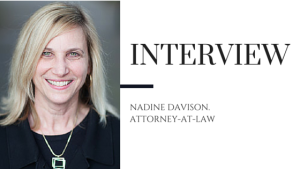Estate planning is a topic that often comes up in investment discussions. The complexity of this area and the potential ramifications of doing something wrong makes getting advice from a qualified expert (not me) crucial. Recently I had the opportunity to pass along some of your questions to a highly qualified specialist and expert in the field, Nadine Davison. Nadine is an estate planning attorney and shareholder with the Corvallis law firm of Smith, Davison & Brasier, PC.
Originally from Bethesda, Maryland, Nadine moved here twenty years ago when her husband accepted a position as an English professor at OSU. She has two teenagers, a seventeen year old son and a fourteen year old daughter.
Before moving to Oregon, Nadine practiced for eight years in Washington, DC, representing corporations and individuals in all aspects of complex commercial litigation. After moving west, she continued her litigation practice in Eugene for three more years, and then took a few years off to be home full-time with her children before joining Jeanne Smith and her practice in 2003.
Below Nadine answers many of the questions that have been posed to me over the years. Hopefully, this discussion sparks some thought in your household on whether or not your current plan is up to date and adequate to the task.
1. What’s the danger of not having a plan – let’s say I have fairly typical assets and I die? What’s the danger in terms of my heirs?
Actually, everyone already has a plan – Continue reading
